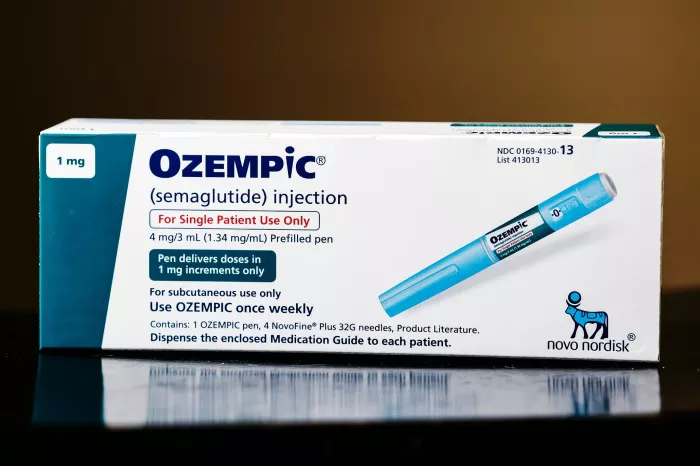Mental health issues can affect anyone at any stage of life, and it is crucial to recognize the signs and seek appropriate help for individuals struggling with such challenges. Unfortunately, many individuals may feel isolated, stigmatized, or unsure of how to access the necessary support. This article aims to provide a comprehensive guide on how to get help for someone with mental health issues. By following these steps, you can assist your loved one in navigating the complex landscape of mental health resources and enable them to receive the care and support they need.
Recognizing the Signs of Mental Health Issues
Signs and symptoms of mental health issues can vary widely depending on the specific condition and the individual’s unique experiences. It is important to note that experiencing one or more of these signs does not necessarily indicate the presence of a mental health disorder, but they may serve as a general guideline for recognizing potential concerns. Here are some common signs and symptoms:
Changes in mood: Persistent feelings of sadness, hopelessness, irritability, anger, or mood swings that seem out of proportion to the situation.
Withdrawal and isolation: Social withdrawal, avoiding previously enjoyed activities or social interactions, and a general disinterest in connecting with others.
Changes in sleep patterns: Insomnia, difficulty falling asleep or staying asleep, or excessive sleeping and oversleeping.
Changes in appetite: Significant weight loss or gain, loss of appetite or overeating, and changes in eating habits.
Lack of energy and fatigue: Feeling constantly tired, lacking energy, or experiencing a noticeable decrease in motivation and productivity.
Difficulty concentrating: Struggling to focus, make decisions, or remember things. Decreased ability to concentrate on tasks or follow conversations.
Physical symptoms: Unexplained physical symptoms such as headaches, stomachaches, or body aches, which have no clear medical cause.
Increased substance use: Escalating or excessive use of alcohol, drugs, or other substances as a means to cope with emotions or distress.
Changes in behavior: Engaging in risky or impulsive behaviors, sudden changes in behavior, or acting out of character.
Thoughts of self-harm or suicide: Frequent thoughts of self-harm, suicide, or expressing feelings of worthlessness, hopelessness, or a desire to escape.
Anxiety and excessive worry: Feeling constantly anxious, experiencing excessive worry or fear, and having difficulty controlling or managing these feelings.
Psychosomatic symptoms: Physical symptoms that are directly linked to psychological distress, such as stomachaches, headaches, or other bodily sensations.
It’s important to remember that everyone’s experience with mental health issues is unique, and these signs and symptoms can manifest differently in different individuals. It is essential to approach the individual with empathy and without judgment, fostering an open and supportive environment where they feel comfortable discussing their concerns.
Effective Steps to Seek Help for Mental Heath Issues
1. Encourage Open Communication
Creating a safe space for open communication is vital when supporting someone with mental health issues. Encourage them to express their feelings, concerns, and thoughts without fear of judgment. Active listening, empathy, and validating their experiences can provide a strong foundation for seeking help together.
2. Research Available Resources
Before seeking professional assistance, gather information about the available mental health resources in your area. Look for mental health clinics, therapists, psychologists, and support groups. Consider the specific needs of the individual, such as the type of mental health issue they are facing, their preferences, and any potential language or cultural considerations.
3. Connect with a Mental Health Professional
Consulting with a mental health professional is a crucial step in helping someone with mental health issues. Start by reaching out to their primary care physician, who can provide referrals to appropriate specialists. Additionally, you can contact local mental health clinics or use online directories to find professionals specializing in the specific mental health condition your loved one is facing.
4. Encourage Therapy and Counseling
Therapy and counseling are highly effective approaches for managing mental health issues. Encourage your loved one to seek therapy and offer to accompany them to their appointments, if they wish. Cognitive-behavioral therapy (CBT), dialectical behavior therapy (DBT), and psychodynamic therapy are among the many evidence-based therapies available. A qualified mental health professional can help determine the most suitable approach.
5. Support Groups and Peer Networks
Support groups and peer networks provide valuable support and understanding to individuals with mental health issues. Research local support groups, both in-person and online, that cater to the specific mental health condition. Attending these groups can help your loved one connect with others facing similar challenges, gain insights, and share coping strategies.
6. Educate Yourself
Educating yourself about your loved one’s specific mental health condition can help you better understand their experiences and offer appropriate support. Read reputable books, articles, and online resources to enhance your knowledge. Familiarize yourself with potential triggers, symptoms, and treatment options to facilitate informed discussions with the individual and mental health professionals.
7. Assist with Practical Matters
Supporting someone with mental health issues involves assisting with practical matters that may become overwhelming for them. Help them schedule and keep track of appointments, manage medication, or organize daily routines. Offering a helping hand with everyday tasks can alleviate some of their stress and promote stability.
8. Monitor and Follow-Up
Regularly check in on your loved one’s well-being and encourage open conversations about their progress. Offer ongoing support and be observant for any changes in behavior or symptoms. If their condition worsens or they express thoughts of self-harm or suicide, take immediate action by contacting their mental health professional, a helpline, or emergency services.
Available Resources to Help with Mental Health Issues
There are various resources available and support systems to help someone with mental health issues:
Mental health professionals: Mental health professionals, including psychiatrists, psychologists, counselors, and therapists, play a crucial role in providing diagnosis, treatment, and support. They can offer therapy sessions, prescribe medication if necessary, and guide individuals through their mental health journey.
Primary care physicians: Primary care doctors can provide initial assessments, referrals to mental health specialists, and coordinate care between different healthcare providers. They can offer guidance and monitor an individual’s overall health while addressing mental health concerns.
Community mental health centers: Community mental health centers are organizations that offer a range of mental health services, including counseling, therapy, support groups, and psychiatric evaluations. They often provide services on a sliding fee scale, making mental health care more accessible.
Helplines and crisis hotlines: Helplines and crisis hotlines are available 24/7 to provide immediate support and assistance during a mental health crisis. These services are staffed by trained professionals who can offer guidance, crisis intervention, and referrals to appropriate resources.
Online resources and websites: Numerous reputable websites and online resources provide valuable information on mental health conditions, treatment options, self-help strategies, and support networks. Examples include the National Alliance on Mental Illness (NAMI), the American Psychological Association (APA), and mental health organizations specific to your country or region.
Support groups: Support groups bring together individuals facing similar mental health challenges. They provide a safe space for sharing experiences, gaining insights, and offering mutual support. Support groups can be in-person, facilitated by mental health professionals, or online through forums and virtual communities.
Nonprofit organizations and advocacy groups: Nonprofit organizations and advocacy groups dedicated to mental health offer a range of resources, educational materials, and support services. They may conduct awareness campaigns, provide community programs, and advocate for mental health policy changes.
Employee Assistance Programs (EAPs): EAPs are workplace programs that offer confidential counseling and support services to employees and their families. They can provide referrals to mental health professionals, offer short-term counseling, and assist with work-related stress and mental health concerns.
Online therapy platforms: Online therapy platforms provide remote access to licensed therapists and counselors through video, phone, or chat sessions. These platforms offer convenience, flexibility, and privacy for individuals seeking therapy from the comfort of their own homes.
Educational institutions and student services: Schools, colleges, and universities often have counseling centers or student services departments that provide mental health support to students. These services may include counseling, workshops, and referrals to outside resources.
Remember, the availability of resources may vary depending on your location. It is important to research and explore the specific resources and services offered in your area or country to ensure access to appropriate support for mental health issues.
Effective Ways to Encourage Someone to Seek Professional Help
Encouraging someone to seek professional help for their mental health issues can be a delicate process. Here are some effective ways to approach the conversation and provide support:
Express concern and empathy: Start the conversation by expressing genuine concern for their well-being. Let them know that you care about their mental health and that seeking help is a positive and courageous step towards their well-being.
Choose the right time and place: Find a comfortable and private setting to have an open and uninterrupted conversation. Ensure that the person feels safe and supported, creating an atmosphere conducive to discussing sensitive topics.
Share your observations: In a non-judgmental manner, discuss the changes or behaviors you have noticed that indicate their mental health struggles. Be specific, provide examples, and emphasize that these changes are common in mental health conditions.
Normalize seeking help: Share stories or examples of other people who have sought professional help and benefited from it. This can help reduce stigma and show that seeking assistance is a common and important step towards recovery.
Offer support and assistance: Let the person know that they don’t have to face their challenges alone. Offer to accompany them to appointments, help them research mental health professionals, or assist with any logistical or practical matters that may arise.
Highlight the benefits of professional help: Emphasize that mental health professionals are trained to provide evidence-based treatments and support tailored to their needs. Discuss how therapy or counseling can provide tools and strategies for managing symptoms, improving overall well-being, and enhancing their quality of life.
Address concerns and misconceptions: Address any concerns or misconceptions they may have about seeking professional help. Assure them that therapy is confidential, and they can discuss their concerns and preferences with the mental health professional to find an approach that works for them.
Be patient and understanding: Recognize that the decision to seek help is deeply personal and may take time. Avoid pressuring or forcing them into seeking professional help. Instead, offer your ongoing support, patience, and understanding throughout their journey.
Normalize self-care: Encourage self-care practices and healthy coping mechanisms. Discuss the importance of engaging in activities they enjoy, maintaining a balanced lifestyle, and seeking social support from friends, family, or support groups.
Remember that each individual’s situation is unique, and they may respond differently to the suggestion of seeking professional help. If they are hesitant or resistant, respect their boundaries, but continue to express your support and readiness to help whenever they are ready.
Also See: When Someone Refuses Mental Health Treatment: What Can You Do
Conclusion
Getting help for someone with mental health issues is a compassionate and essential endeavor. By recognizing the signs, fostering open communication, connecting with mental health professionals, and supporting the individual’s self-care practices, you can play a crucial role in their journey towards mental well-being. Remember, seeking help is not a sign of weakness but a courageous step towards healing. With the right support and resources, individuals with mental health issues can lead fulfilling lives and regain a sense of hope and resilience.
[inline_related_posts title=”Related Topics” title_align=”left” style=”list” number=”3″ align=”none” ids=”701,638,497″ by=”categories” orderby=”rand” order=”DESC” hide_thumb=”no” thumb_right=”no” views=”no” date=”yes” grid_columns=”1″ post_type=”” tax=””]
































